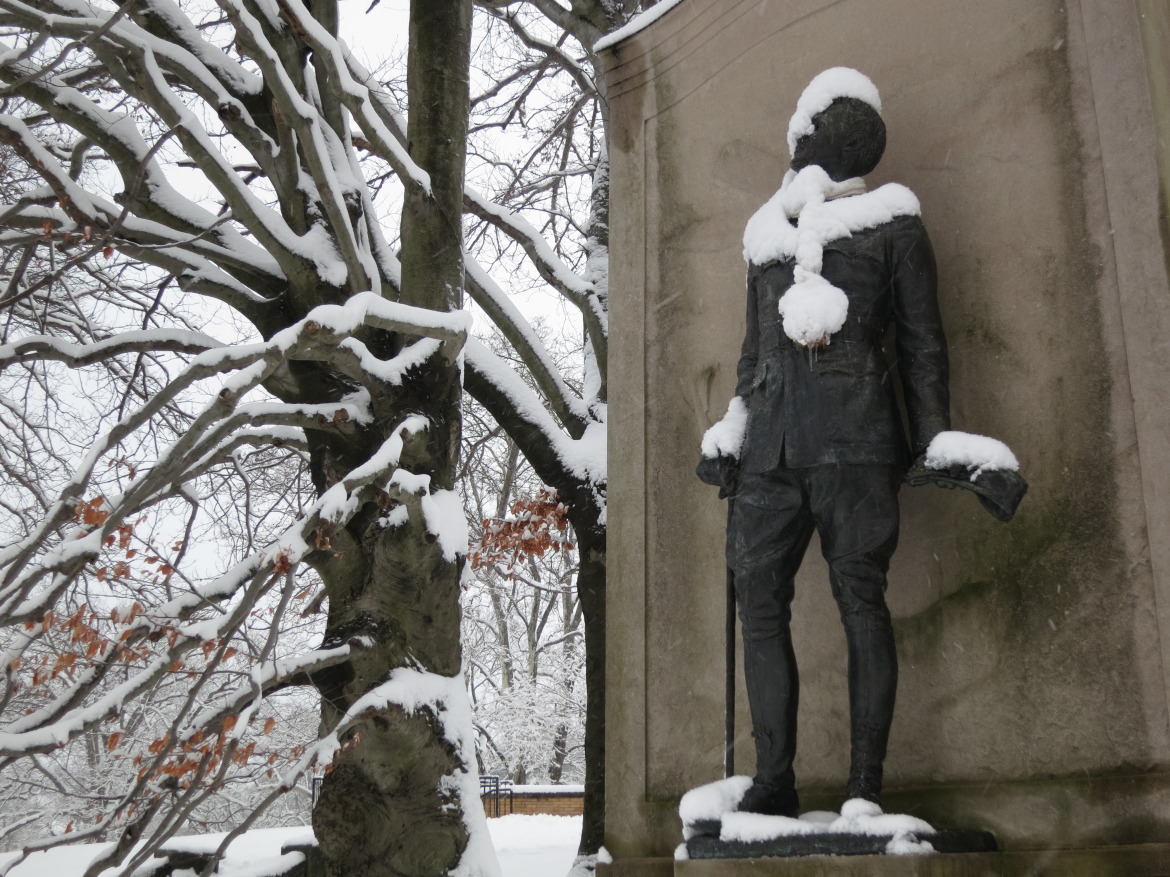With below freezing temperatures and below zero wind chills forecasted for Thursday January 31, 2019 into Friday February 1, 2019, the Greenwich Department of Health is reminding residents to take precautions against hypothermia and frostbite and when using alternative heating sources in their home.
Heating systems during cold weather normally work “overtime” and sometimes become faulty without warning. When this situation occurs, space heaters and fire places get used to stay warm; however, their use increases the risk of household fires and carbon monoxide poisoning.
Extreme weather conditions are classified as near freezing or below freezing temperatures. Exposure to these weather conditions, whether indoors or outside, can cause serious or life threatening health emergencies.
Although anyone can be affected by the cold, infants, children, the elderly and those with medical conditions are particularly at risk. The following information should be considered when dealing with extreme cold weather conditions.
Outdoor Safety Tips
- Dress warmly by wearing layers of loose clothing with hat, gloves, scarf and insulated shoes
- Limit outdoor exposure including daily exercise routines
- Know outdoor temperature and the effect of wind chill factors on the body
- Keep walkways free of ice and snow to prevent falls
- Avoid the use of alcohol
- Notify someone of your whereabouts when you go out
- Avoid prolonged time outdoors of infants, children, the elderly, those with medical conditions and pets
 Cold Weather Health Problems and Emergencies
Cold Weather Health Problems and Emergencies
Frost Bite a medical condition caused by the cold freezing of body tissue. Frostbite most often affects the nose, ears, cheeks, chin, fingers or toes. First signs of frostbite include redness or pain in any skin area followed by a white, waxy or grayish-yellow look to the skin. A person who is experiencing frostbite must be moved indoors immediately. Avoid rubbing parts of the body that appear to be frostbitten. This condition is serious and requires immediate medical attention.
Hypothermia a medical emergency that is caused by prolonged exposure to the cold. Hyperthermia develops when a person’s body temperature falls below normal. Persons affected by hypothermia may shiver uncontrollably, become lethargic, appear confused or disoriented and not realize what is happening. Other signs of hypothermia include puffiness of the face, memory loss, slurred speech, decreased respiratory rate, irregular pulse and apparent exhaustion.
If someone is hypothermic, call 911 immediately.
Persons experiencing hypothermia should be taken to a warm location, have wet clothing removed and wrapped in warm dry clothing until medical assistance arrives. A warm non-alcoholic beverage can be given to a person who is conscious. Call 911 for medical help immediately.
Safety Tips to Prevent Carbon Monoxide Poisoning
Carbon Monoxide (CO) is an invisible, odorless gas that can be fatal. The following safety tips will prevent CO poisoning:
NEVER use portable generators or gasoline-powered equipment inside your home or garage, car port, etc.
Never use gas or charcoal grills in the house, garage, etc.
Purchase a carbon monoxide detector for your home
Make sure inlets and outlets for your furnace are free of snow
Make sure your car’s exhaust pipe is clear. Never heat your car up in the garage, even if the garage door is open
Symptoms of CO poisoning include headache, fatigue, dizziness, nausea or vomiting or loss of consciousness. Take everyone, including pets out of the house and call 911 from outside the house if you think there is a CO exposure.
Taking preventive action and knowing what to do if exposed to extreme cold is important to stay protected and safe. For more information, contact the Department of Health at (203) 622-7836.
TO REPORT ONLY EMERGENCIES – For all Police, Fire and EMS emergencies, dial 911.
Aquarion Water Company 1-800-732-9678
Northeast Utilities 1-800-286-2000
CT Natural Gas Company (203) 869-6900
Local Non-Emergency Phone Numbers:
Town of Greenwich – www.greenwichct.org (203) 622-7700
Greenwich Department of Health, Division of Environmental Health
(203)-987-1001/622-7838
Greenwich Fire Department non-emergency (203)-622-3950
Greenwich Police Department non-emergency (203)-622-8003
Non-Emergency Medical Transportation Service
– American Medical Response (AMR) 1-800-379-7700
Department of Parks and Recreation Tree Division (203)-622-7824
Greenwich Chapter, American Red Cross (203)-869-8444
Greenwich Department of Social Services (203) 622-3800
Connecticut Poison Control 1-800-222-1222